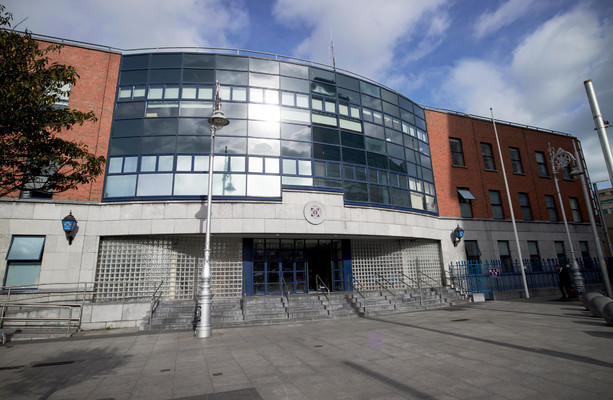From Russian Prison too Turkish embassy: Crimean Tatar‘s Remarkable Journey
Table of Contents
In a move that underscores the ongoing geopolitical tensions in Eastern Europe, Ukrainian President volodymyr Zelenskyy appointed Nariman Dzhelyal, a prominent Crimean Tatar political figure recently released from Russian captivity, as Ukraine’s new ambassador to Turkey. The appointment, announced in a Friday evening address, marks a significant advancement in both Ukrainian foreign policy and the ongoing struggle for human rights in Crimea.
Dzhelyal,a 44-year-old former journalist and community leader,spent nearly three years imprisoned by Russian authorities after his arrest in September 2021. He was accused of involvement in a plot to sabotage a gas pipeline, charges he and his fellow activists vehemently denied. in 2022, he received a 17-year prison sentence, a harsh punishment that drew international condemnation.
His release in June 2024, part of a prisoner exchange, was met with relief and party. “Zelensky said in his evening address that he approved a decision to send ‘Nariman Dzhelyal to Turkey’ as ambassador,” confirming the appointment. This appointment is a powerful symbol of resilience and a testament to Dzhelyal’s unwavering commitment to his people and his country.
Dzhelyal’s role as deputy head of the Mejlis, the Crimean Tatar’s conventional assembly, adds another layer of significance to his appointment. The Mejlis, banned by Russia following its annexation of Crimea in 2014, represents the collective voice of a community that has faced significant persecution under Russian rule. Many Crimean Tatars, like Dzhelyal, openly opposed the annexation and have afterward faced imprisonment and other forms of repression.
Amnesty International, recognizing Dzhelyal as a prisoner of conscience, described his sentencing as “another blow to human rights” in crimea. His appointment as ambassador represents a powerful counterpoint to Russia’s actions, highlighting the international community’s concern for human rights violations in the region.
The appointment also carries strategic weight. Turkey, a NATO member with complex relationships with both Ukraine and Russia, plays a crucial role in regional stability. Dzhelyal’s deep understanding of the Crimean Tatar experience and his firsthand knowledge of Russian tactics could prove invaluable in navigating this delicate diplomatic landscape. His appointment follows Zelenskyy’s May appointment of former military commander-in-chief valery Zaluzhny as ambassador to Britain.
Dzhelyal’s story resonates with the broader struggle for human rights and self-determination. His journey, from unjust imprisonment to a high-profile diplomatic post, serves as a powerful reminder of the enduring spirit of resistance and the importance of international solidarity in the face of oppression. His appointment is not just a diplomatic move; it’s a symbol of hope for the Crimean Tatar people and a challenge to those who seek to silence their voices.
From Russian Prison to Turkish Envoy: Decoding Zelenskyy’s Appointment of Nariman Dzhelyal
Ukrainian President Volodymyr Zelenskyy has appointed Nariman Dzhelyal, a Crimean Tatar leader recently released from Russian captivity, as Ukraine’s new ambassador to Turkey. This unexpected move carries immense significance both symbolically and strategically,signaling Ukraine’s dedication to human rights,Crimean Tatar issues,and its evolving relationship with Turkey.
A Symbol of Resilience and Resistance
Elena Petrova, Senior Editor, World Today News: Dr. Natalia Ivanova, welcome to world Today News. Zelenskyy’s decision to appoint Nariman Dzhelyal as ambassador is being hailed as a powerful symbol. Can you elaborate on the significance of this appointment, especially considering Dzhelyal’s experiences?
Dr. Natalia Ivanova, Professor of eastern European Studies, Georgetown University:
Thank you for having me. It’s a truly remarkable appointment. dzhelyal, as you know, was imprisoned by Russian authorities on what were widely seen as trumped-up charges. His resilience in the face of this injustice, coupled with his unwavering commitment to the Crimean Tatar people, makes him a deeply inspiring figure. His appointment sends a clear message that Ukraine will not tolerate the persecution of its citizens and supports the right to self-determination for the Crimean Tatars.
The crimean Tatar Context
Elena Petrova: Can you provide some background on the Crimean Tatar situation and its connection to the current geopolitical landscape?
Dr. Natalia Ivanova: The Crimean Tatars are an indigenous Turkic ethnic group who have faced systematic persecution under russian rule. Following the illegal annexation of Crimea in 2014, their situation worsened. The Mejlis, their representative assembly, was banned, and many Crimean Tatars were subjected to intimidation and imprisonment. This appointment acknowledges their struggle and elevates their voices on the international stage.
Strategic Implications for Ukraine and Turkey
Elena Petrova: Turkey is a key player in the region, maintaining complex relationships with both Ukraine and russia. What are the potential strategic implications of this appointment?
Dr. Natalia Ivanova: It’s a smart move on Zelenskyy’s part. Dzhelyal’s intimate understanding of the Crimean Tatar experience and his knowledge of Russian tactics will be invaluable in navigating Turkey’s complex geopolitical position. This appointment strengthens Ukraine’s ties with Turkey, a NATO member crucial to regional stability. It could also help garner international support for Ukraine’s cause and highlight the human rights violations being committed in occupied Crimea.
Looking Forward: A Beacon of Hope
Elena Petrova: Nariman Dzhelyal’s journey from imprisonment to this diplomatic role is a remarkable testament to human resilience. What message does this send to the Crimean Tatar people and others facing oppression?
Dr. Natalia Ivanova: It’s a powerful message of hope. It shows that even in the face of immense hardship, the fight for freedom and justice can prevail.Dzhelyal’s appointment is a beacon of hope for the Crimean Tatar community, a recognition of their suffering, and a reminder that the international community is watching and will not allow their voices to be silenced.
This appointment is more than just a diplomatic move; it’s a statement of solidarity, a symbol of resistance, and a step towards a more just future.

